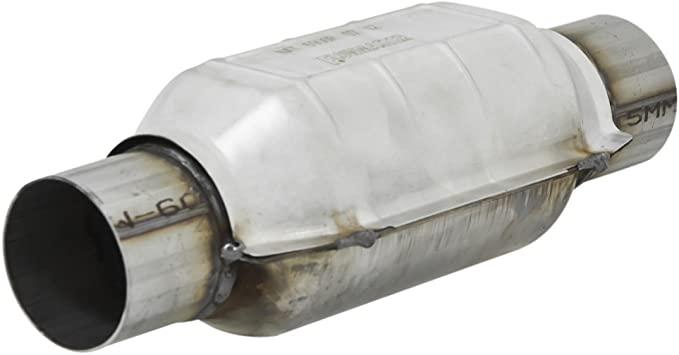
OKLAHOMA CITY – For the second consecutive year the Oklahoma Legislature has passed a bill to stiffen penalties for theft of catalytic converters.
House Bill 1328 by freshman Rep. Suzanne Schreiber (D-Tulsa) provides that any equipment used or intended to be used to commit any theft of a catalytic converter or copper, and any violation of the Oklahoma Scrap Metal Dealers Act – including any money derived from the sale of stolen catalytic converters or copper, which is often stolen from street lights, or violations of the Oklahoma Scrap Metal Dealers Act – will be subject to forfeiture.
HB 1328 was enacted on April 30 and goes into effect Nov. 1.
Schreiber said she was informed about the issue by her predecessor, former state Rep. Carol Bush, who had worked to fight catalytic converter thefts during her time in the Legislature.
“I heard loud and clear that the theft of copper and the precious metals found in catalytic converters is an ongoing issue and law enforcement needed more support to get to the root of the crime,” Schreiber said.
“Authorizing forfeiture allows us to get at the root of the crime and stop the business of catalytic converter theft,” she said.
“Thousands of catalytic converters are stolen from Oklahomans every year, costing families an average of more than $1,000. They are stolen from neighborhoods, from church parking lots, at hotels, anywhere there is a vehicle, and that creates major safety risks for the public.”
Law last year stiffened penalty
House Bill 4373, which increased the punishment for theft of catalytic converters, tires and wheels from a vehicle, became law on Nov. 1, 2022. That bill modified the elements of third-degree burglary to include theft of these vehicle parts; the penalty for violating the law can be a fine of up to $5,000 and/or a prison sentence of up to five years.
“As a former police officer, I’ve seen the hardship caused by the theft of catalytic converters and other vehicle parts and how such crimes are on the rise,” said state Rep. Ross Ford, principal author of HB 4373. “With monthslong delays in getting replacement parts, these thefts come at great expense and can be debilitating to law-abiding vehicle owners,” the Broken Arrow Republican said.
“This is a particularly timely issue, as catalytic converter theft is on the rise and the situation for victims of this crime has been worsened by supply chain problems,” said Sen. Darrell Weaver (R-Moore), Senate sponsor of the measure.
More than 2,000 catalytic converters were stolen in Tulsa last year, according to U.S. Attorney Clint Johnson for the Northern District of Oklahoma.
“It’s pretty easy to slip underneath a vehicle with a battery-powered Sawzall and cut those things off,” said Chief Russ Landon of The Village Police Department in north Oklahoma City.
A Lawton police officer told Southwest Ledger in March 2022 that thefts of catalytic converters in Lawton are “kind of seasonal. Sometimes we’ll have one or two cases sporadically, and other times we’ll get several right in a row.”
The Oklahoma City Police Department began keeping statistics on catalytic converter thefts last fall and reported that from Aug. 1 to Nov. 4, at least 385 catalytic converters were stolen in OKC. “That number may not be exact because some reports get routed to other units if another crime is involved,” said Capt. Valerie Littlejohn of the OKCPD’s Office of Media Relations.
Catalytic converters contain pricey metals
Catalytic converter thefts have been increasing nationally because two of the metals from which they are manufactured are quite valuable.
A catalytic converter is an exhaust emission control device that encases a honeycomb structure that filters fumes to reduce toxic gases and pollutants in exhaust gas from an internal combustion engine. Catalytic converters are usually used with engines fueled by either gasoline or diesel.
The parts are manufactured from three metals that command a steep price tag. Two of those elements are palladium and rhodium.
Rhodium, a by-product of the production of platinum and palladium, is unequaled in its ability to remove the most toxic pollutants from vehicle exhaust.
A single troy ounce (which is slightly heavier than a regular ounce) of rhodium was priced at $7,950 to $8,201 on May 4. Palladium prices that day ranged from $1,454.85 to $1,513.650 per ounce.
A troy ounce of gold was commanding $2,036 to $2,061.


